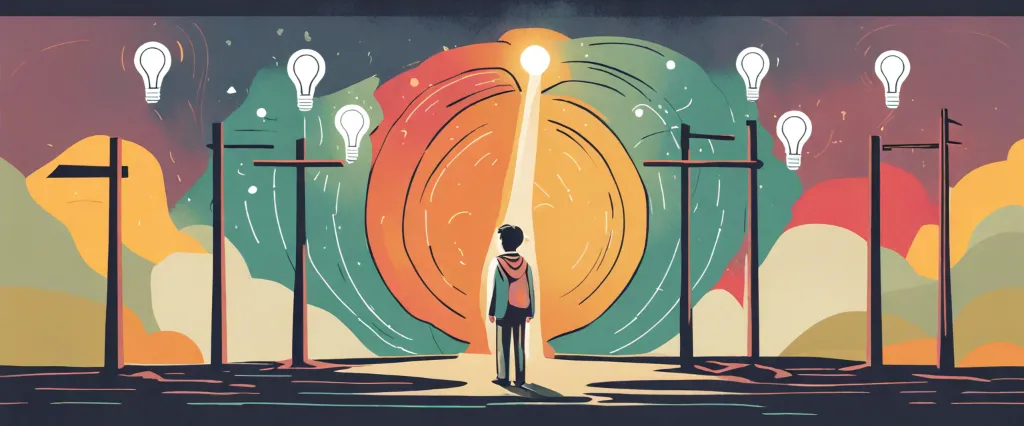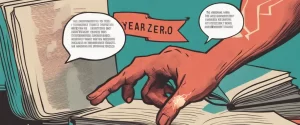
In the world of personal development and self-improvement literature, countless authors have endeavored to guide readers towards achieving their full potential. Two such authors who have captivated audiences with their innovative insights into behavior change and personal transformation are Og Mandino and Dr. B.J. Fogg. In their acclaimed works, “The Greatest Salesman in the World” and “Tiny Habits” respectively, Mandino and Fogg offer distinct yet complementary approaches to unlocking personal success. While Mandino delves into the realm of motivation and inspiration through his fictional tale, Fogg explores the realm of behavioral psychology and habits using scientific research and practical strategies. These two masterpieces, written decades apart, shed light on different facets of human behavior and provide invaluable lessons on how to achieve lasting positive change. By engaging with each author’s unique perspective, this comparative study seeks to dissect the underlying principles and methodologies employed in “The Greatest Salesman in the World” and “Tiny Habits,” ultimately discerning their common ground and discerning the paths they forge towards personal growth and fulfillment.
Brief Summary of Two Books
The Greatest Salesman in the World by Og Mandino
“The Greatest Salesman in the World” by Og Mandino is a self-help book that tells the captivating story of Hafid, a young camel boy who dreams of becoming the greatest salesman in ancient Jerusalem.
The book is divided into ten scrolls, each containing a powerful and timeless lesson for success and personal growth. Hafid is chosen by the renowned merchant, Pathros, to be his successor and entrusted with ten ancient scrolls containing the secrets of successful selling and a happy, prosperous life.
As Hafid embarks on his journey, he encounters numerous challenges and setbacks but perseveres with unwavering determination. With each scroll, he learns valuable lessons such as embracing love, persisting amidst failures, and maintaining a positive mindset.
The book also explores the power behind the ten ancient scrolls and their teachings, which have the potential to transform the life of anyone who applies them. These lessons center around principles like persistence, gratitude, kindness, and conscious effort.
Throughout his life, Hafid implements these principles and becomes tremendously successful, not only as a salesman but as a person. The book emphasizes that success is not limited to financial gains but encompasses all aspects of a fulfilled life. It encourages readers to live purposefully and strive for personal growth and happiness.
“The Greatest Salesman in the World” provides practical advice through an engaging story, offering readers invaluable wisdom to achieve success, both in business and in life.
Tiny Habits by Dr. B.J. Fogg
“Tiny Habits: The Small Changes That Change Everything” is a self-help book written by Dr. B.J. Fogg, a behavior scientist and researcher at Stanford University. The book focuses on the concept of creating transformative changes in our lives through the power of small habits.
Dr. Fogg introduces the concept of “tiny habits” – small, achievable actions that can be easily incorporated into our daily routines. He argues that rather than relying on willpower and grandiose goals, the key to lasting change lies in implementing tiny habits that are easy to perform and build upon.
The book provides practical guidance on how to create and sustain these tiny habits, using a three-step process: “Anchor, Make It Easy, and Celebrate.” Anchoring involves finding a prompt or behavior that triggers the desired habit, making it easy means breaking down the habit into simple actions, and celebrating refers to acknowledging and rewarding oneself for completing the habit.
Throughout the book, Dr. Fogg shares personal anecdotes, scientific research, and examples of individuals who have successfully employed this method to instigate profound changes in their lives. He also addresses common misconceptions about habit formation and addresses potential challenges that may arise during the process.
Overall, “Tiny Habits” offers a practical and optimistic approach to habit formation, emphasizing the importance of consistency, simplicity, and self-compassion. The book encourages readers to start small, celebrate progress, and embrace the power of tiny habits to create lasting positive change in their lives.
Comparison between Two Books

Similarities in Self Help
Both “The Greatest Salesman in the World” by Og Mandino and “Tiny Habits” by Dr. B.J. Fogg focus on self-help themes and provide guidance for personal growth and success. Despite addressing different topics (overcoming challenges in sales and building habits, respectively), there are several similarities in how these books approach self-help:
1. Mindset and belief systems: Both books emphasize the importance of mindset and belief systems in personal development. They highlight the power of positive thinking and the need to cultivate a growth mindset to achieve success and overcome obstacles.
2. Behavior and action-oriented approach: Both books stress the significance of taking action. They recognize that simply having the right mindset is not enough; it must be coupled with consistent actions to bring about positive change. The books provide practical strategies and techniques to implement and reinforce desired behaviors.
3. Practical guidance and techniques: Both authors provide practical advice and techniques that readers can apply in their lives. “The Greatest Salesman in the World” introduces ten scrolls, each containing wisdom to be practiced daily, while “Tiny Habits” suggests breaking down behaviors into small, manageable steps to make habit formation easier.
4. Personal anecdotes and stories: Both books utilize personal anecdotes and stories to illustrate their principles and teachings. These narratives help readers connect with the material and make it more relatable and memorable.
5. Positive reinforcement: Both authors emphasize the importance of positive reinforcement in achieving desired results. “The Greatest Salesman in the World” encourages readers to celebrate small victories, while “Tiny Habits” emphasizes the need for self-praise and rewards as a way to solidify newly-formed habits.
6. Long-term commitment: Both books recognize that self-help is a lifelong journey that requires commitment and persistence. They encourage readers to maintain consistent efforts and provide strategies to tackle setbacks and stay motivated.
In summary, “The Greatest Salesman in the World” and “Tiny Habits” share common ground in their focus on mindset, action-oriented approaches, practical guidance, personal anecdotes, positive reinforcement, and commitment to long-term growth. While the specific contexts and themes may differ, these similarities make both books valuable resources for those seeking self-help.
Divergences in Self Help
The Greatest Salesman in the World by Og Mandino and Tiny Habits by Dr. B.J. Fogg are both influential self-help books that aim to guide readers on improving their lives and achieving personal success. However, they differ in their approaches and perspectives towards self-help. Let’s explore the divergence of these two books.
1. Structure and Format:
– The Greatest Salesman in the World: Og Mandino presents his teachings through a fictional story with ten scrolls that convey different life-changing principles. Each scroll builds upon the previous, forming a narrative journey for readers.
– Tiny Habits: Dr. B.J. Fogg provides a more structured and systematic approach to improving oneself by introducing the concept of “tiny habits.” He breaks down the process into three main elements: Anchor, Habit, and Celebration. Dr. Fogg’s book focuses on implementing small, manageable habits to create lasting changes.
2. Philosophical Approach:
– The Greatest Salesman in the World: Og Mandino’s book emphasizes ancient wisdom and spirituality, drawing from religious and philosophical teachings. It encourages readers to adopt positive affirmations, persistence, and faith in overcoming challenges.
– Tiny Habits: Dr. B.J. Fogg adopts a scientific approach rooted in behavioral psychology. He emphasizes the role of environmental triggers, motivation waves, and habit formation in achieving goals. This book focuses more on understanding human behavior and leveraging it to create lasting change.
3. Targeted Audience:
– The Greatest Salesman in the World: While the book primarily revolves around salesmanship, its teachings are applicable to anyone looking to improve themselves and find success in various aspects of life.
– Tiny Habits: Dr. B.J. Fogg’s book caters to a broader audience, offering practical techniques for behavior change and habit formation that can be applied by individuals from all walks of life.
4. Language and Writing Style:
– The Greatest Salesman in the World: Og Mandino’s writing style relies on poetic prose and eloquent language. The book uses metaphors, narratives, and emotionally charged language to engage and inspire readers.
– Tiny Habits: Dr. B.J. Fogg’s writing style is more straightforward and concise, focusing on providing actionable advice and step-by-step instructions. The book is structured with clear headings, bullet points, and summaries for ease of understanding.
In summary, The Greatest Salesman in the World by Og Mandino and Tiny Habits by Dr. B.J. Fogg diverge in various aspects. While Og Mandino’s book leans towards spiritual and philosophical teachings with a narrative approach, Dr. Fogg’s book offers a systematic and behavioral psychology-based method for creating positive change in life. Both books contribute valuable insights, yet they approach self-help from different angles, catering to different preferences and objectives.

Conclusion
Both “The Greatest Salesman in the World” by Og Mandino and “Tiny Habits” by Dr. B.J. Fogg are esteemed books in their respective fields.
“The Greatest Salesman in the World” is a classic self-help book that offers valuable lessons and insights for sales professionals. It emphasizes the importance of perseverance, determination, and developing good habits to achieve success. The book tells a compelling story and provides practical tips for salespeople to excel in their careers.
On the other hand, “Tiny Habits” is a book focused on behavior change and creating habits that lead to personal growth. Dr. B.J. Fogg, a renowned expert in behavior design, shares his research-backed techniques to help readers make lasting changes through tiny, incremental habits. This book offers a unique approach to habit formation, breaking down complex tasks into small, manageable steps to ensure success.
Ultimately, choosing between these two books depends on your specific interests and needs. If you are seeking inspiration and guidance in the world of sales, “The Greatest Salesman in the World” may be more relevant to you. However, if you are looking to develop new habits and create positive changes in your life, “Tiny Habits” would be a more suitable choice. Both books have their merits and can provide valuable insights for personal and professional development.

